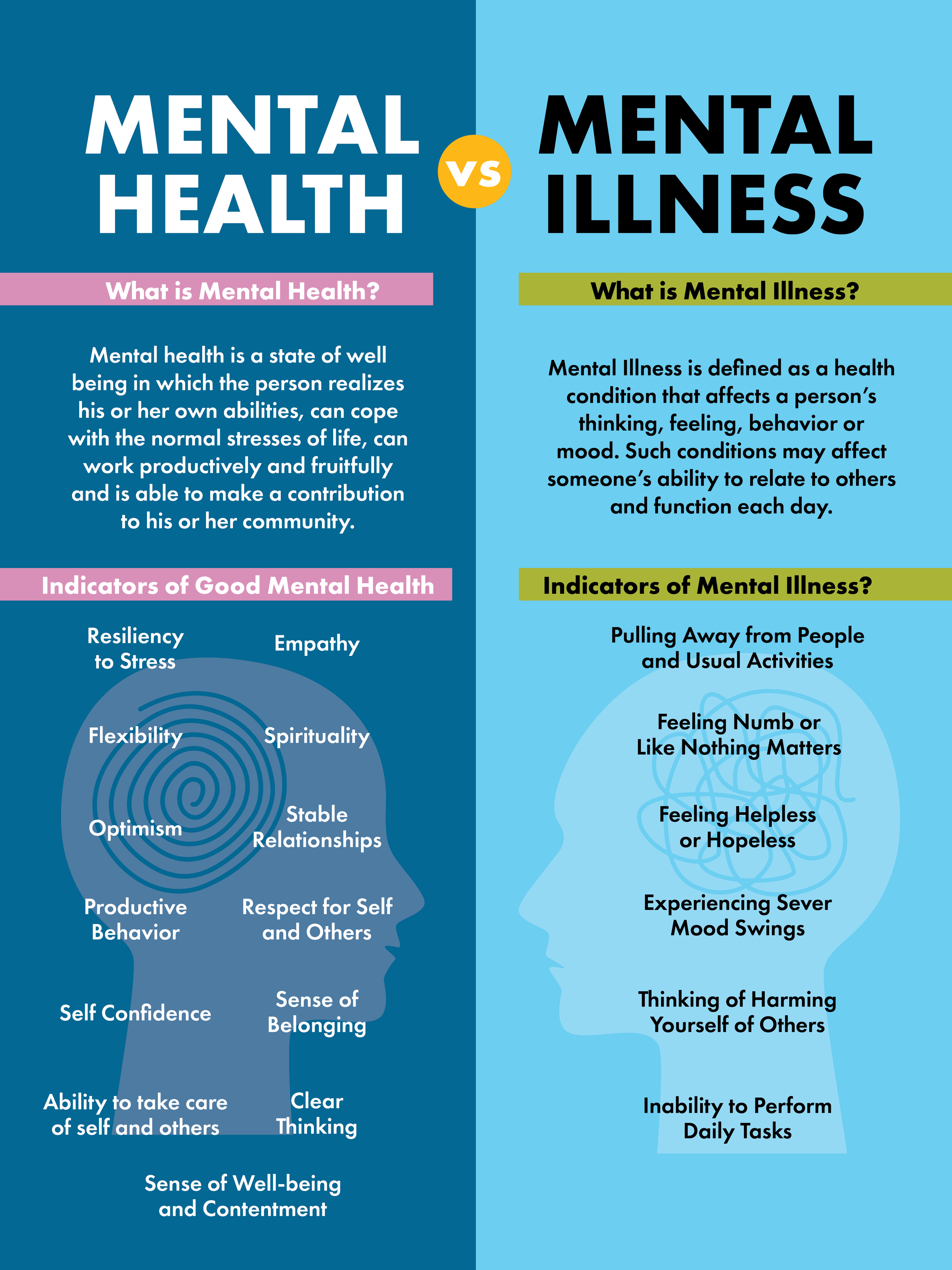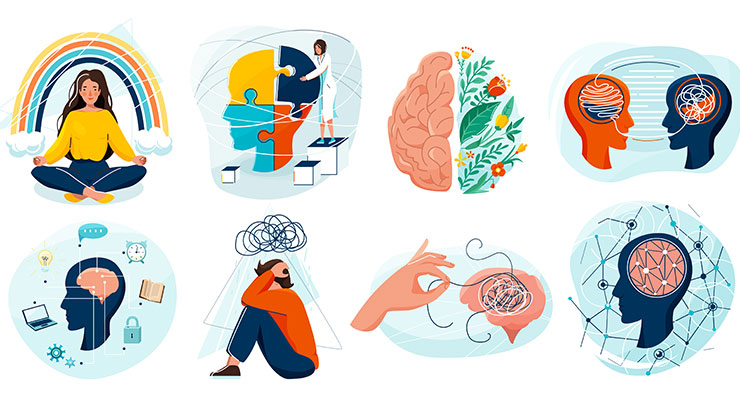Residential Mental Health Services Designed for Whole-Person Care
Residential Mental Health Services Designed for Whole-Person Care
Blog Article
Comprehensive Inpatient Mental Health Solutions for Effective Treatment
Inpatient mental wellness services represent a critical component of the health care system, providing a structured and intensive atmosphere for people experiencing severe mental distress. These solutions use a multidisciplinary strategy, integrating different evidence-based treatments to address the complicated demands of patients. Nevertheless, the efficiency of such thorough care prolongs past prompt stabilization; it also includes the shift to outpatient assistance, a critical phase commonly forgot. Exploring the nuances of this continuum reveals significant implications for both individual recovery and more comprehensive mental health and wellness results. What elements really influence this transition, and how can we enhance its efficiency?
Understanding Inpatient Mental Wellness Solutions
Inpatient mental health solutions provide essential assistance for people experiencing severe emotional distress that can not be handled efficiently in an outpatient setup. These services are created to use an intensive degree of care in an organized atmosphere, typically within a healthcare facility or specialized center. Individuals admitted to inpatient programs typically show acute signs and symptoms, such as suicidal ideation, serious depression, or psychosis, requiring continuous monitoring and intervention.
The admission process generally includes an extensive evaluation by psychological health specialists, who examine the person's mindset, history, and instant demands. When confessed, patients take part in a selection of therapeutic techniques tailored to their certain needs, including medicine monitoring, individual therapy, and team sessions. This all natural approach intends to stabilize the patient's problem, promote security, and foster coping abilities.
Inpatient psychological wellness services not only address immediate health and wellness problems but also act as a bridge to ongoing treatment. By offering a regulated atmosphere, these solutions help with the advancement of therapy strategies that can be proceeded in outpatient setups, thus guaranteeing a continuum of treatment and boosting lasting end results for people with complex mental health needs.
Key Components of Effective Treatment
Effective treatment in inpatient mental health services comprises several vital parts that cultivate recuperation and stablizing. A detailed evaluation is vital to determine the individual's specific needs and obstacles. This analysis notifies the advancement of a tailored therapy strategy, which serves as a roadmap for intervention.
Another crucial part is the multidisciplinary group technique. Partnership among psychoanalysts, psychologists, nurses, and social workers makes certain that numerous point of views contribute to the person's treatment, enhancing the performance of treatment. Evidence-based therapeutic methods, such as cognitive-behavioral therapy (CBT) and dialectical actions treatment (DBT), are also indispensable, supplying structured techniques that deal with maladaptive thought patterns and behavioral concerns.

Lastly, a concentrate on aftercare planning is crucial to make certain a seamless transition to outpatient solutions, reducing the risk of regression and promoting lasting wellness. These collective elements create a reliable treatment structure within inpatient mental wellness services.
Advantages of Comprehensive Care

Detailed care in inpatient mental wellness services uses countless benefits that substantially boost patient outcomes. One of the main benefits is the all natural approach to treatment, attending to not just the emotional signs and symptoms but also the physical, social, and emotional needs of individuals. This detailed assessment enables tailored interventions that promote overall well-being.
Another benefit is the integration of multidisciplinary teams, which fosters collaboration among healthcare professionals. This collaborative atmosphere makes certain that people obtain worked with treatment, lowering the threat of fragmented here are the findings therapy and improving communication among caregivers. Detailed care helps with continuity of solutions, enabling for seamless transitions from inpatient to outpatient setups, which is essential for long-term recovery.

Lastly, the organized setting of detailed inpatient treatment supplies a risk-free space for patients to engage in healing tasks, assisting them establish coping strategies and Source durability. Collectively, these benefits add to extra reliable treatment and improved quality of life for people experiencing mental health crises.
Evidence-Based Therapeutic Approaches
In the world of mental health therapy, evidence-based restorative approaches play a crucial duty in making sure that clients receive reliable and medically supported treatments. These strategies integrate the most effective readily available research study with clinical expertise and individual worths, promoting a tailored therapy experience that addresses specific requirements.
Cognitive Behavior Treatment (CBT) is one of one of the most extensively recognized evidence-based techniques, concentrating on identifying and altering unfavorable idea patterns and behaviors. This structured technique has actually shown effectiveness in treating conditions such as ptsd, depression, and anxiety. Similarly, Dialectical Actions Treatment (DBT) is particularly effective for individuals with borderline personality disorder, emphasizing the advancement of psychological law and social performance skills.
Additionally, medication management is often an essential component of evidence-based treatment, as psychotropic medicines can ease signs and enhance general functioning. Joint treatment designs, which include multidisciplinary teams, further boost the effectiveness of inpatient services by making sure extensive assessments and continuous surveillance.
Eventually, the combination of evidence-based therapeutic strategies not just promotes favorable scientific results but likewise empowers patients, cultivating a sense of firm and durability in their mental wellness journeys.
Transitioning to Outpatient Assistance
The shift from inpatient mental health and wellness services to outpatient assistance marks a crucial stage in a client's recuperation trip. This period needs careful preparation and coordination to guarantee connection of care and to minimize the dangers of regression or dilemma. Efficient discharge planning must start early in the inpatient remain, entailing a multidisciplinary team that includes psychiatrists, psycho therapists, registered nurses, and social workers.
Crucial element of an effective transition consist of the growth of an extensive aftercare strategy tailored to the person's certain demands. This plan must outline follow-up visits, drug management, and restorative treatments, as well as identify neighborhood sources and assistance groups that can help with recurring recuperation.
Furthermore, individual and family members education is important throughout this stage. Understanding the signs of prospective troubles and the importance of adhering to treatment can equip people and their support group.
Regular follow-up and reassessment of the outpatient plan are necessary to attend to advancing challenges. By fostering a collective connection between outpatient and inpatient providers, the possibility of sustained recovery boosts, eventually improving the client's lifestyle and decreasing the danger of readmission.

Verdict
In recap, detailed inpatient psychological health and wellness solutions use a crucial structure for resolving extreme emotional distress via a multidisciplinary strategy. Inevitably, such detailed treatment is crucial for long-lasting mental health and health.
The admission procedure generally includes a detailed analysis by psychological health and wellness experts, who evaluate the person's psychological state, history, and immediate demands.Reliable therapy in inpatient mental wellness solutions makes up a number of essential components that cultivate recuperation and stabilization.Comprehensive treatment in inpatient mental health solutions uses various advantages that dramatically improve patient end results.The transition from inpatient psychological health and wellness services to try this web-site outpatient assistance marks an essential stage in a patient's recuperation journey.In recap, detailed inpatient mental health and wellness services use an important framework for addressing serious psychological distress with a multidisciplinary approach.
Report this page